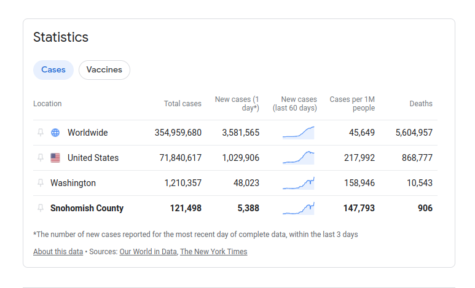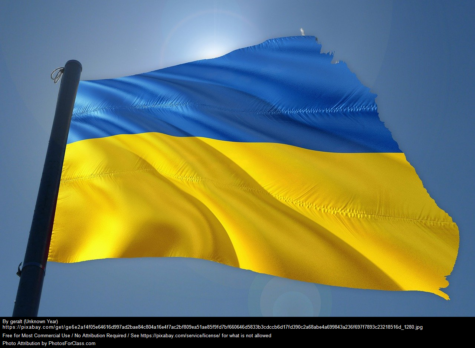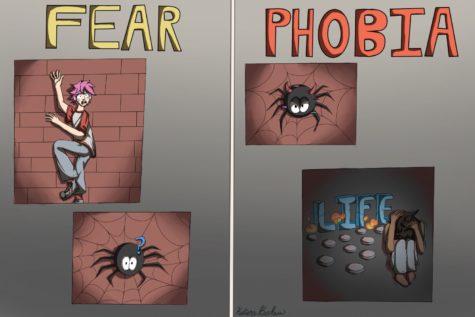New Covid Variant: Omicron; The New Delta
With Covid plaguing the nation, a new variant has come along, Omicron.

“Omicron is not swag.” — -Zoe from the Announcements
What is Omicron?
The Omicron variant, which was first identified in South Africa in November 2021, was found to be a less preventable disease and spread more easily then past mutations of Covid. Even if you are fully vaccinated, scientists expect a breakthrough of Covid cases with Omicron, and if you are vaccinated you can still spread Omicron to other people. But vaccines are effective in order to prevent hospitalization and even death.
How has Omicron affected people?
With a new variant that is easier to spread, even when vaccinated, it is becoming a lot more common for people to catch covid. According to npr.org, over 73% of new covid cases have been caused due to Omicron, that is more than six times the cases last month, which topped at 12.6%. With new and more covid cases popping up hospitals around the Northeast, Midwest, and Southwest are overflowing with new

patients who need hospital level care. “It’s bad news for COVID patients and it’s bad news for everybody else who needs hospital-level care,” says Dr. Eric Toner, a senior scholar at the Johns Hopkins Center for Health Security.
Currently there are new covid cases in the thousands, Covid cases started to spike around December, when Omicron became more popular. Now we have more than 2,000 almost every week since December in America, and over a million everyday world wide. In King county there is over 65,000 active Covid cases, and over 25,000 active Covid cases in Snohomish.
You can get Covid statistic updates every day here.
Why is Omicron easier to spread?
Omicron, unlike other variants, can trick your body by disguising itself as a helpful cell. So when getting the Covid  vaccine, your cells are introduced to the Covid cell and learn how to fight it in advance so it doesn’t cause hospitalization or death, but when it comes to Delta and Omicron, your cells are still learning how to fight these mutated cells. How faster Omicron spreads compared to Delta scientists don’t know yet, but what we do know is how to make yourself less vulnerable to these new diseases.
vaccine, your cells are introduced to the Covid cell and learn how to fight it in advance so it doesn’t cause hospitalization or death, but when it comes to Delta and Omicron, your cells are still learning how to fight these mutated cells. How faster Omicron spreads compared to Delta scientists don’t know yet, but what we do know is how to make yourself less vulnerable to these new diseases.
Studies carried out found that omicron symptoms are similar to delta but more mild. So omicron will spread fast and more rapid but with milder symptoms.
Even though Omicron has very mild symptoms, there is still a difference between unvaccinated and vaccinated when it comes to symptoms. According to Dr. Peter Chin-Hong, an infectious disease specialist at the University of California, San Francisco, “There is little systematic data so far, but I expect that many vaccinated and especially boosted folks are experiencing very mild symptoms and there is a higher proportion of vaccinated folks who have no symptoms.”
“Vaccinated people often experience omicron variant symptoms for a less amount of time, too,” Chin-Hong said. “Those who are fully vaccinated will have symptoms for one or two days, whereas unvaccinated will see symptoms for five or more days.”
How do I protect myself?
Masks
Masks are a big protection against any disease by making sure that one of your most vulnerable parts of your body, your mouth and nose, which is a key part of your immune system and makes catching diseases a lot easier when uncovered, are covered whenever you are around a large group of people who aren’t social distancing.
Testing
Go get tested if you feel ill or have more than one Covid symptom, most places to get tested are free and it’s better to be safe than sorry. You can learn more information about how you and your family safe with at-home testing at covidtests.gov










Consuelo Carlson ¦ Jan 13, 2022 at 6:55 pm
Sad 🙁